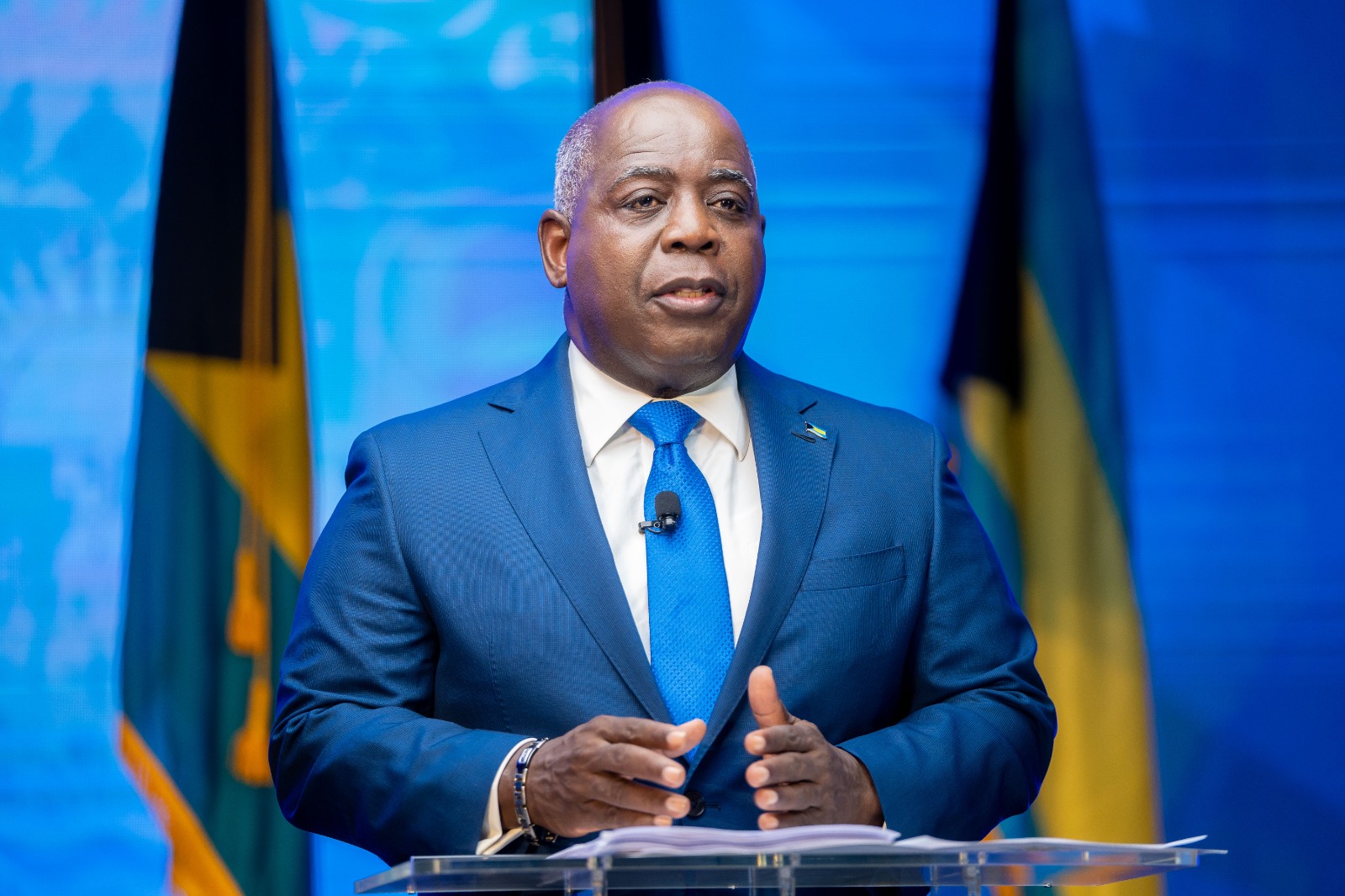By: LINDSAY THOMPSON
Bahamas Information Services
#The Bahamas, October 13, 2022 – In his ‘first year in office’ National Address the Hon. Philip Davis, Prime Minister and Minister of Finance, announced a minimum wage increase to $260, crime fighting initiatives, and other wide-sweeping measures to tackle challenges facing the country.
The National Address was delivered Tuesday, October 11, 2022 in a live broadcast heard around the country. In the 36-page document, the prime minister shared the progress of his administration so far and plans for education, food security, job readiness, health care, national security and more measures for the way forward.
Tackling head-on the burden of inflation and other issues that have driven up the cost of living for Bahamians, and globally, the prime minister underscored the importance of making adjustments for the economic benefit of families.
In this vein, he announced that the minimum wage would increase from $210 per week to $260 per week. The last time the minimum wage was raised in the country was the year 2015.
“During an inflation emergency, it’s important to take the steps we can to improve affordability. Of course, nothing is more important to helping families make ends meet than higher wages,” the prime minister said.
He added, “A new increase has been long overdue. For minimum wage earners in the Public Service, the change will be retroactive going back to July of this year. For minimum wage earners in the private sector, the increase will begin in a little less than three months, in January of the coming year, allowing employers time to prepare for the increased expense.”
According to the prime minister, the higher minimum wage will benefit thousands of Bahamians. The increase will help, it was long awaited, long overdue, and the extra money every week will make a difference.
“However, we are aware that this will not eliminate the hardship of trying to make ends meet in today’s economy. Instead, it represents progress on the way to a livable wage,” the prime minister said.
He explained that the raise was negotiated by the National Tripartite Council, which includes the government, representatives from the private sector and unions.
“Our shared goal was to raise the minimum wage without having a negative impact on employment or job growth, and we believe that has been achieved,” the prime minister said.
Another measure announced was the addition of 38 new items to the Price Control List, a move to further eliminate the economic burden on families.
“We are limiting the wholesale and retail mark-up of everyday items like diapers, and food like chicken, eggs, bread, bananas, apples, oranges, broccoli, onions, and potatoes. These items are being added for at least a six-month period, at which point we will review and evaluate the impact on businesses and consumers. We are also reducing the profit margin on price-controlled drugs, providing additional relief to Bahamians,” the prime minister said.
In the area of crime-fighting initiatives, he revealed that The Bahamas has entered into a formal working arrangement with the American Law Enforcement Agency, ATF – the Bureau of Alcohol, Tobacco, Firearms and Explosives towards this end.
“And we are working with American intelligence to share information to stop this flow of arms across our borders. We didn’t get here overnight, and so major progress will take time – but we are pushing hard for immediate advances, because we need to make people safer, now,” the prime minister said.
Additional crime-fighting measures he mentioned include the recent appointment of a Commissioner of Police, with new resources, and new initiatives targeting gangs and guns possession.
“We have created a collaborative multi-agency approach to interrupting the cycles of violence that are tearing up our streets and communities. We are recruiting hundreds of new police. We’re also focused on intervening early, identifying those at risk and steering them to a better path, which is why we’re expanding and improving programmes like Urban Renewal and Second Chance,” the prime minister said.
He admitted being aware that gangs have started reaching into the schools to recruit. Hence, the Royal Bahamas Police Force has added a security presence to the school campuses.
“The primary responsibility for making progress on crime lies with the government, of course,” said the prime minister. “But there are limits to what any government can do – we can invest in new police cars, or technology, or programmes that rehabilitate and offer opportunity – but we still need parents to create loving, safe homes.”
(Photos/OPM)

